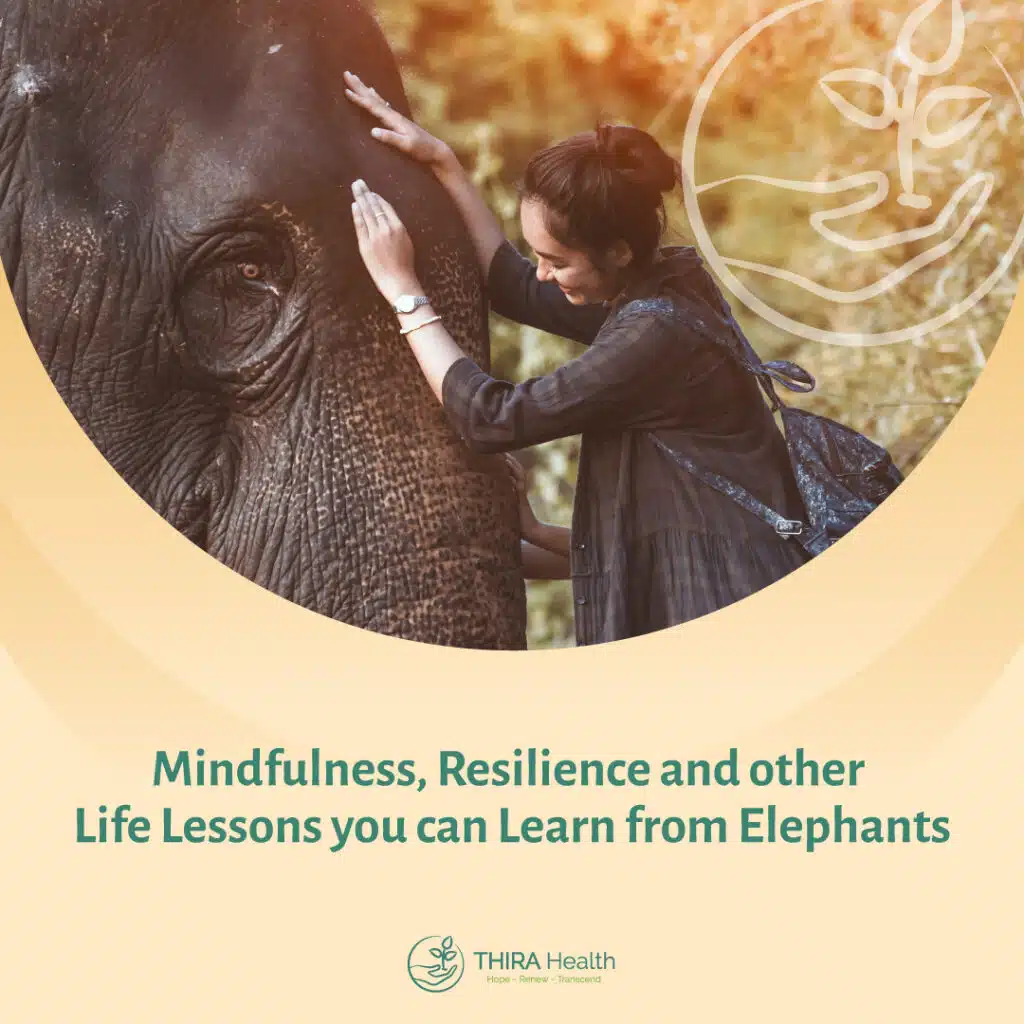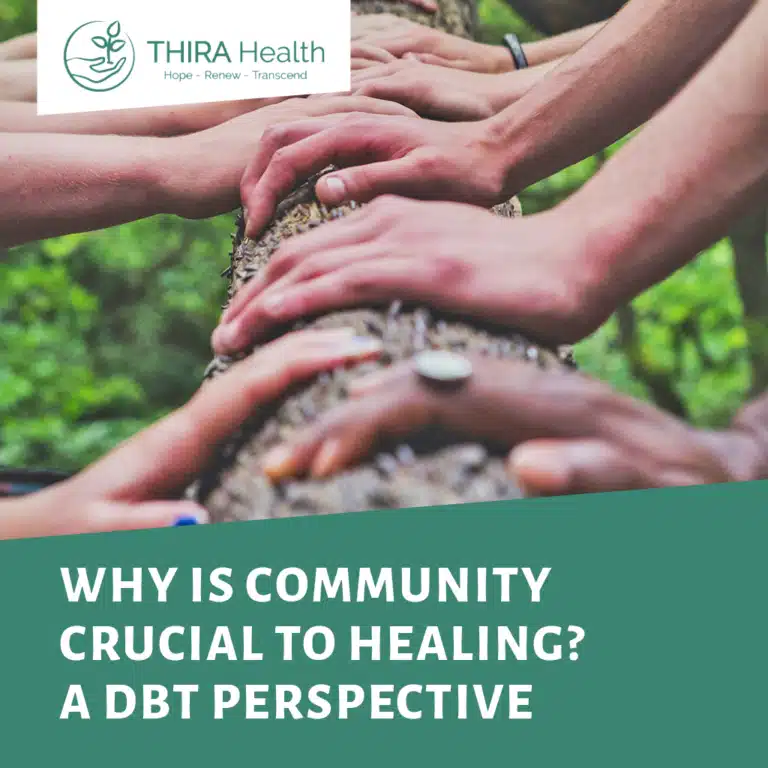If you’ve ever been to a zoo, a wildlife exhibit, or have been privileged to travel internationally, you may have had the opportunity to observe the gentle beauty of elephants. Elephants are majestic, beautiful beings that signal to us the best of what humankind can be if we were to slow down and love each other just a little bit more. From the practice of observation, we can put our DBT mindfulness skills into practice and develop greater empathy, build resilience, protect against negative emotions and learn other coping skills that will benefit us into the future.
August 12th is International Elephant Appreciation Day, so in the spirit of allowing the art of other species to influence our own lives and practices, have a look at some of the amazing skills and traits of elephants that can be helpful as you consider your own goals or aspirational ways of being.
Elephants Operate at a Mindful Pace
So many of us—parents, children, young adults, and even entire communities—operate in a state where we constantly feel overwhelmed. In contrast to the constant buzz of human life, it’s nice to consider a corner of the animal kingdom where things move at a slower pace.
From this encouragement to find ways of simply being in the world instead of constantly plugging away at things we have to do or be, we can find the space to notice our own emotions. This is mindfulness at its core. Our main priority as human beings, after all—if broken down into simple practice—is to cultivate and awareness of our emotions and build skills that allow us to nurture relationships, exercise compassion and patience with one another, and honor the complexity of the various roles and responsibilities we shoulder throughout our lifespan. Successfully adapting to a mindful pace can go a long way toward protecting your well being and ultimate happiness, even in the face of challenging life experiences.
Elephants Nurture Relationships
Herds of elephants are led by the matriarch, who ensures that the herd stays safe, nourished, and properly guided. The matriarchal dynamic of elephants nurtures a deep respect for female elephants, which we could all use more of as we consider the patriarchal harms of human society. While women are often taught to be nurturers, the elephant matriarch makes important decisions, protects the herd fiercely, and possesses strong leadership skills. When we can create respect and understanding for each other, trust builds, collaboration happens, and relationships strengthen.
While there is still some natural hierarchy, the elephant species relies much on teamwork and collectivism to ensure that its members are all taken care of. This might mean scouting out land resources, hunting together, or using physical touch to comfort others. Elephants have a knack for togetherness and herd preservation – in the bigger scheme, this means that the health of the herd is put alongside the self, which creates a sense of community, love, and care.
The idea of nurturing relationships through similar helping behaviors, support, comfort, and care is at the core of counseling work. Whether it’s building a personal relationship with your therapist or their encouragement to seek support from loved ones around you, we recognize that connection and allyship are true healers.
Elephants Exercise Compassion and Empathy
Elephants showcase these characteristics in magnificent ways that we often forget about as human individuals. Their culture of collectivism and dedication to the herd are just two ways we’ve already discussed how they pour back into one another, but there are multitudes of actions they take to exercise compassion and empathy. Elephants have been known to reassure one another in times of stress, whether it’s through trunk hugs, assisting one another when injured, grieving the loss of a friend, and reacting to emotional distress with similar emotional intensity. The thread that exists among these actions is empathy.
When we think about empathy in this capacity, the fable by Aesop comes to mind, where “no act of kindness, no matter how small, is ever wasted.” However, it can be tough to access these virtues when we find it difficult to access them within ourselves. Exercising empathy for ourselves and others might be:
Tasking ourselves with practicing self-compassion when feeling like a failure or imposter
Being a good listener
Acknowledging our own feelings and extending that to others when in conflict
In therapy, these traits and practices show up often. Whether it’s teaching the ideas of whole person awareness, communicating your needs to others, or honoring hunger cues, compassion and empathy are at the center of mindfulness and self-love.
Elephants Embody Resilience
Elephants live simply in that they experience joy and grief, look out for one another, and work to make their ecological systems more sustainable so that they can live long and full lives. However, much of their humanity has been threatened by the sport of gaming, trophy hunting, and other violence that is dwindling their existence. Still, they press on, despite the danger.
When we honor the complexities of the roles and responsibilities we are shouldered with, it also means dealing with the imminent danger that surrounds us. While humans present the largest threat to elephants, for us, it is issues of systemic oppression, discrimination, unexpected pains such as loss, and other challenges that threaten our peace.
In crisis, elephants band together to protect one another, don’t hesitate to express joy or grief, and do their best to do their little bit of good. In the human species, we can take a page from this when we are balancing work, life, and home responsibilities, and especially when those roles start to overwhelm us.
Embody Elephant Mindfulness Through Healing at THIRA
At THIRA Health, we help women and girls establish how they can embody resilience and navigate the different “hats” we wear as humans. Counseling can help you discover your capacity for empathy and need for caring, supportive relationships.
Much like elephants, the goal of healing is to embrace and bear witness to all that’s around you and within you, and doing so with lots of trunk hugs, playfulness, and teamwork with your herd.
To learn more about how we use mindfulness practice to provide space for nurturing relationships, developing empathy, and caring for your mental health among it all, contact us now!







